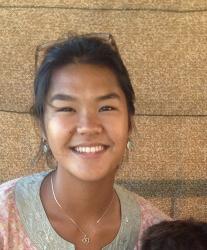
On Monday, February, 18, Amnesty International published a new report on the right to health for people with variations of sex characteristics in Iceland.
It is estimated that 1.7% of the global population is born with atypical biological sex characteristics. This means that the sex characteristics of these individuals do not completely align with established norms of being ‘male’ or ‘female’. An estimated 6,000 individuals with variations of sex characteristics live in Iceland and some choose to call themselves intersex.
The report highlighted the gaps in the Icelandic health system pertaining to individuals with variations of sex characteristics.
Iceland has a small medical community, which makes it challenging for patients with atypical biological characteristics to navigate the system that lacks clear protocols and disciplinary care on their medical conditions. “This factor undermines the individual’s ability to access the highest attainable standard of physical and mental health,” reads the report.
Iceland’s universal healthcare system increases individuals’ chances of getting diagnosed with variations of sex characteristics at birth, in infancy, in adolescences, or later in life.
People interviewed for the report shared that living in Iceland, a country with an extremely small population, exacerbates the stigma of being “abnormal”.
Iceland has been ranked the most gender-equal country in the world every year since 2009, but despite that, Amnesty International concluded that people with atypical biological characteristics in Iceland lack clear human rights procedures.
Intersex people and their advocates in Iceland have pointed out that Iceland still performs unnecessary cosmetic surgery on many intersex newborns, which is a violation of basic body autonomy and human rights. A new law has been drafted that would set up a committee to establish guidelines for protections of intersex children, but it would not immediately ensure their protection.
Buy subscriptions, t-shirts and more from our shop right here!















